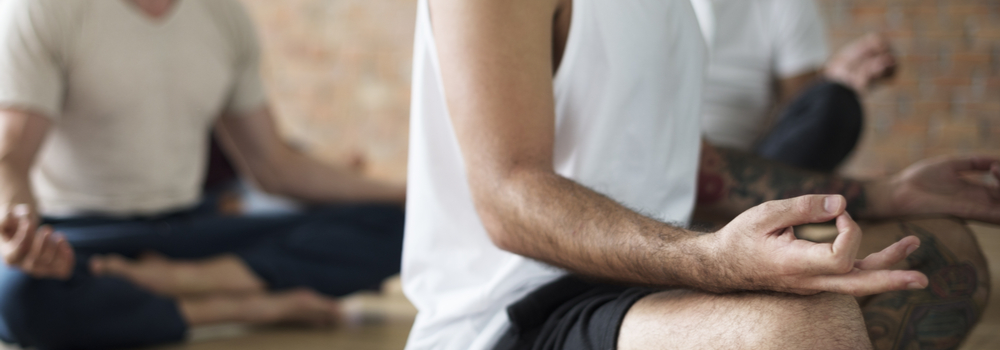Meditation is one of the most important tools that men in recovery develop when they go to treatment. Proven as a technique for overcoming addiction, meditation helps reduce stress and cravings for addiction. Outside of daily competition against the self, and the stigma of the male character which is to be in competition with other males, meditation is a private time for healing. The idea of meditation becoming a participatory competition, raises questions.
“March Mindfulness” is what Chris Taylor decided to call the “world’s first meditation bracket contest”, he writes for Mashable. When he proposed the idea of a meditation competition to his social media following, he was met with an anticipated response: that competitive meditation seems oxymoronic. Though meditation has been widely criticized for its westernization, competition isn’t necessarily a new or novel idea. Taylor cites that the Puranas, ancient Hindu texts, share stories of meditation practitioners attempting to out-meditate one another “…by slowing their pulse rates or holding up a mirror to their mouths to show how little they were breathing.”
Taylor goes on to describe in great details his trials and errors in setting up the world’s first meditation competition. Along the way he touches on some interesting points. “What if everyone has an unusual form of meditation that really works for them that they never knew about?” Taylor asked himself after experimenting with different forms of meditation himself. “What if every venerable meditation tradition in the world has barely scratched the surface, because they never had feedback like this?” The feedback Taylor refers to is an app and device called Muse which helps measure brain activity in meditation.
Competitive meditation could be a challenge because everyone meditates differently. For some, zen meditation is best. For others, mindfulness meditation is best. For others still, moving meditation creates the most calm.
Another challenge is that meditation is not inherently meant to be competitive because meditation is supposed to be non-judgmental. Most guided meditations include verbiage about letting go of thoughts and attachment to thoughts. Mindfulness meditations in particular asks practitioners to only notice what kinds of judgments come up, but not to attach to those judgments. Meditation is not about how meditative of a state someone can find themselves in- about being the most calm, the most serene, the most zen, the most no-mind. Meditation is simply about being and not being the most being possible.
The implications of “competitive” meditation are interesting, however. As Taylor points out, the combination of technology and meditation in a competitive mindset could open more conversation about how everyone meditates differently. Data and information could be gained from observing the meditation habits of others and even intentionally training for meditation could be beneficial.
Tree House Recovery in Portland, Oregon is helping men find freedom from addiction. Our programs are designed with innovative therapeutic interventions and evidence based practices to help men transform their lives, inside and out. For information on our programs for recovery, call us today: (503) 850-2474




